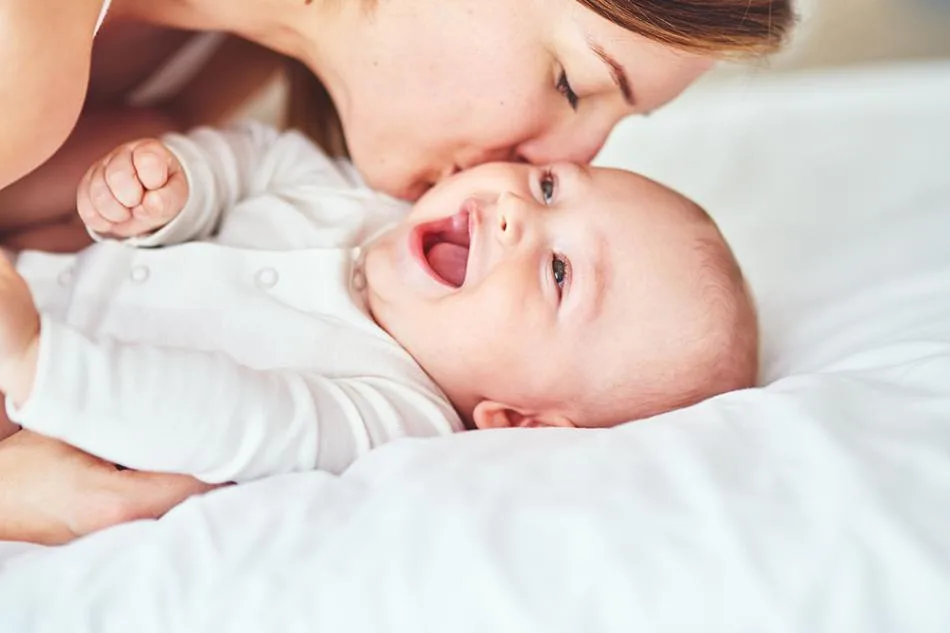
The answer is a Big Yes – you read it right! Kissing on the ear can make the baby or adult permanent deaf! This condition is known as “Cochlear ear kiss injury.”
“Cochlear ear kiss injury” / “Kiss of Deaf” or “Reiter’s Ear Kiss Syndrome (REKS)” came into attention, when Dr. Levi Reiter, professor, and head of the Audiology program, at Hofstra University in New York reported a case of sudden sensory neural hearing loss in a 49-year-old female after getting a kiss from her 4-year-old child on her left ear.
Immediately after such a sudden kiss, the person can suffer from sudden and potentially permanent hearing loss along with other ear symptoms like tinnitus, hypersensitivity to sounds, distorted sound perception, and ear fullness, etc.
Mother lost her hearing!
While watching T.V, the 4-year-old child gave a vigorous, sudden and unexpected kiss to her mommy, which unfortunately landed directly on the external auditory canal (EAC, outer opening of the ear) of her ear. Immediately after the kiss, the mother had a complete loss of hearing in her left ear. She also had other symptoms like dysacusis, screeching tinnitus, and continuous unprovoked facial muscle spasms also on the same side.
Six months before the incident, the mother had received a routine audiometric evaluation and was confirmed to have normal hearing. The mother was also in a good general health condition and was having no ear-related difficulties.
Audiological Evaluation
Her immediate audiograms shown a low frequency sensory neural hearing loss (SNHL) of 35 dB hearing loss (HL) at 500 and 1000 Hz, rising to 15 dB HL at 2000 and 4000 Hz.
Her tympanometry revealed a normal A type curve. No stapedial reflex could be elicited on the left ear, while a normal reflex was present on the right ear.
Her speech reception thresholds (SRT) were within 5 dB of the pure-tone average at 500, 1000, and 2000 Hz for each ear.
The speech recognition score (SRS) was within 5 dB of the pure-tone average at 500, 1000, and 2000 Hz for each ear.
Her DPOAE emissions were absent in the left ear, while it was present on the right ear.
Auditory brain stem (ABR) responses were within normal limits.
To rule out retrocochlear pathologies (RCP) an MRI was also done – reported normal.
Progress
One week after the incident, the mother was symptomatically better, with a reduction in the loudness of tinnitus and episodes of muscle spasms.
At one year follow-up, the patient was still having tinnitus, but of less severity, only in quiet environments. Her hypersensitivity remains unchanged. Her facial muscle twitchings were persisting, but only on exposure to loud sounds.
Audiological evaluation during follow-up visits shown persistent low-frequency SNHL of 30 to 35 dB HL from 250 to 1000 Hz, recovering to 10 dB HL from 2000 to 4000 Hz with poor SRT.
DPOAE were present at all frequencies in both ears during follow-up evaluation.
Her tymps were normal.
Her ipsilateral and contralateral reflexes were absent for left ear and were present for the right ear.
In view of her hypersensitivity to loud sounds, an auditory binaural loudness balance (ABLB) test was done and was suggestive of recruitment (cochlear injury).
Reason for hearing loss due to kissing
A sudden kiss on the external auditory canal (ear-opening) can create a strong negative pressure and a suction effect that pulls the delicate tympanic membrane (eardrum) outwards. This also pulls the chain of three tiny ear ossicles/bones (malleus, incus, and stapes) outwards. This can leads to dislodging of stapes footplate from the oval window of the inner ear.
Once stapes footplate gets dislodged, perilymph (fluid inside the ear) leak occurs, which will cause damage to outer hair cells (nerve endings inside the ear). These hair cells are the end organs for hearing and damage to them can lead to hearing loss, tinnitus, recruitment, and hyperacusis, etc.
Infants and children are at increased risk of having hearing loss following such kissing than adults. This is because of their narrow ear canal, delicate ear structures, the flatter position of the tympanic membrane (eardrum) and the high suction force created by the adults while kissing.
Treatment
From 2008, after the report of this case, Dr. Reiter has identified more than 30 such “Kiss of Deaf” victims.
“There are a lot of cases of unknown unilateral hearing loss in kids, and I am sure that a good portion are from a peck on the ear,” – Dr. Reiter says.
As of today, there exists no definite guidelines and treatment for cochlear ear kiss injury/kiss of Deaf. Dr. Reiter speculates that intratympanic injection of corticosteroids, as done in cases of idiopathic sudden sensorineural hearing loss, may be helpful for such patients, but only if administered within the first few days of the incident.
Since the exact incidence of the disease is unknown, and there exist only a few case reports, no randomized control trials exist on the treatment for such a case.
Hearing aids have been tried in some of these patients. Though this will help them in hearing better, no improvement has been observed for other ear symptoms.
Prevention is the best option
Though the cases of “Cochlear ear kiss injury” are rare, one should be aware of this condition.
Although infants and children are adorable and cute, and you have an urge to kiss on their ear’s, it is very important not to do so, as it can cause permanent hearing loss to them.
References
- Reiter LA. “The Kiss of Deaf”: A case study. The Hearing Journal. 2008 Aug 1;61(8):32-4.
- Interview with Levi Reiter, Ph.D., CCC-A, Professor of Audiology, Hofstra University
- Innocent ‘kiss of deaf’ can cause permanent hearing loss – NBC News, March 29, 2012
- The kiss of deaf: Four-year-old’s big smooch left her mom with partial hearing loss. Newsday. June 7, 2008